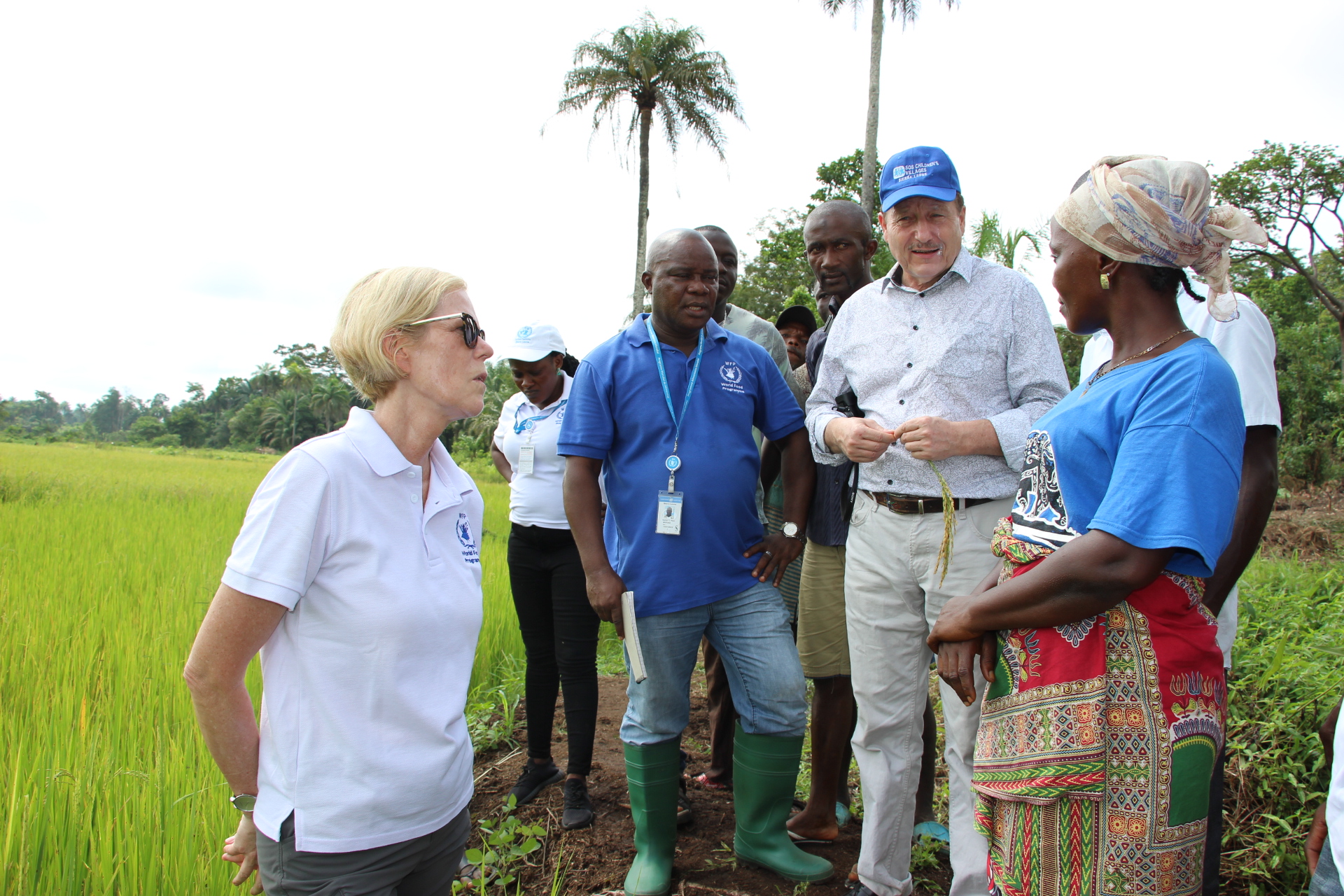By Ibrahim Joenal Sesay
FREETOWN, July 13 (232news.com) – His Excellency, the Ambassador of the Federal Republic of Germany to Sierra Leone, Horst Gruner and WFP Deputy Country Director, Yvonne Forsen took a working visit to the World Food Programme (WFP) assisted inland valley swamps (IVS) development sites and schools where home-grown school feeding programme is being implemented in Makpele and Futa Pejeh chiefdoms in Pujehun district.
The delegation spent the day interacting with project beneficiaries who provided feedback on how the intervention has created economically viable livelihoods for them while protecting the environment.
During the visit, Ambassador Gruner stated that his aim is to strengthen the Long-standing, diverse and friendly relations between Sierra Leone and Germany mentioning that WFP is one of the prime partners of this cooperation in the multi-lateral field. WFP is using flexible German funds for school feeding and the creation of community assets for peace.
”This is a well invested money to promote education and peace. The Federal Republic of Germany is behind those aims,” he said.
He also visited the Zimmi Pujehun District Education Committee (PDEC) Primary School where WFP and the Ministry of Basic and Senior Education (MBSSE) are implementing the home-grown school feeding (HGSF) pilot project, an initiative implemented in partnership with the Japanese International Cooperation Agency (JICA). HGSF seeks to enhance the nutritional value of the school meal through the daily incorporation of fresh and nutritious vegetables, whilst providing a sustainable market opportunity for smallholder and family farmers. The HGSF pilot also entails developing a school menu to guide food preparation under the National School Feeding Programme.
At IVS sites visited in Zimmi and Helebu, WFP in partnership with the Ministry of Agriculture (MOA) is supporting the establishment of climate-sensitive livelihoods through the development and maintenance of small-scale irrigation systems in otherwise unused IVS, which are in turn cultivated with rice and nutritious crops using improved, climate-smart and year-round production methods. The rice and vegetables produced by the farmers are bought by WFP to supply the schools.
At the Roman Catholic primary school in Futa Pejeh, the Ambassador inspected two energy-efficient stoves manufactured in Sierra Leone by the private company Wonder Stove, who installed the fuel-efficient stoves in the school kitchen and trained the volunteer cooks in safe and effective use. WFP is piloting Wonder Stoves in three schools in Pujehun district in collaboration with GIZ’s EnDev initiative, who is undertaking an impact study analysis to inform roll-out nationwide.
At the conclusion of the visit, the Ambassador had this to say:
“The visit has been an eye opener on the importance of school feeding: how it is organised by the schools in the various communities and how food is locally produced for school feeding. It is very impressive and important contribution to human capital development.”

